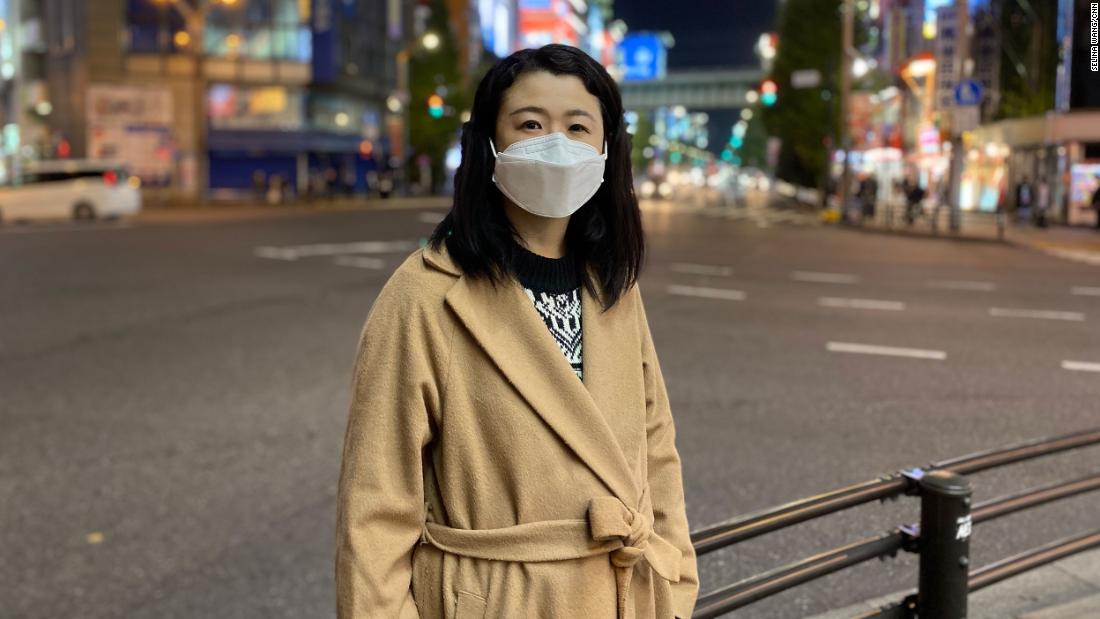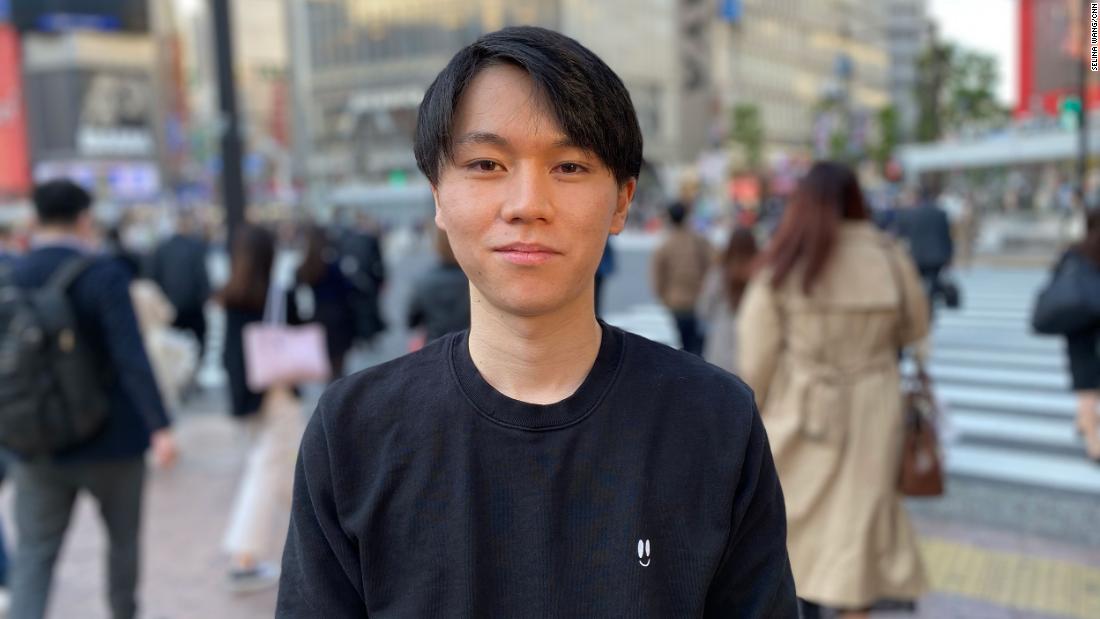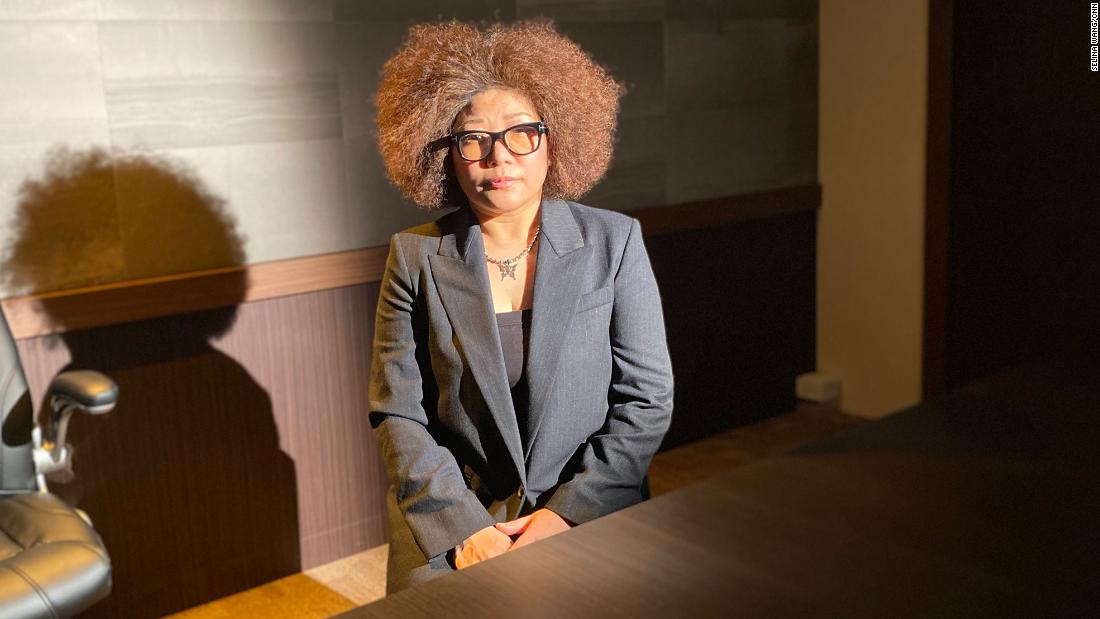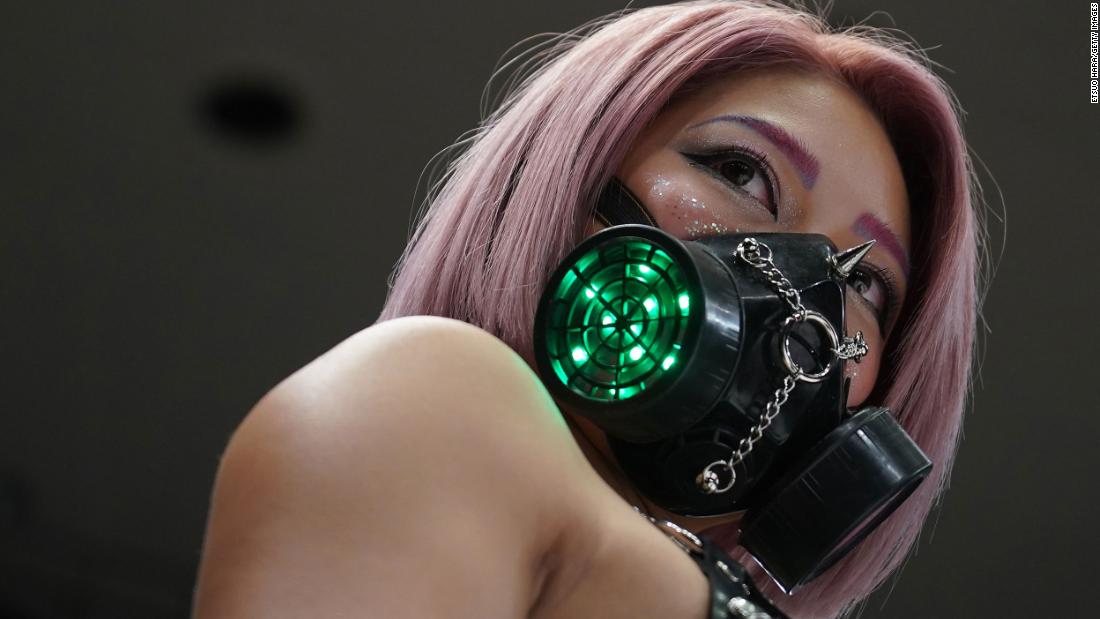Japan: more people died from suicide last month than from Covid in all of 2020
The first time, she was just 22 years old with a full-time job in publishing that didn’t pay enough to cover her rent and grocery bills in Tokyo.
“I was really poor,” said Kobayashi, who spent three days unconscious in hospital after the incident.
Now 43, Kobayashi has written books on her mental health struggles and has a steady job at an NGO. But the coronavirus is bringing back the stress she used to feel.
“My salary was cut, and I cannot see the light at the end of the tunnel,” she said. “I constantly feel a sense of crisis that I might fall back into poverty.”
Experts have warned that the pandemic could lead to a mental health crisis. Mass unemployment, social isolation, and anxiety are taking their toll on people globally.
In Japan, government statistics show suicide claimed more lives in October than Covid-19 has over the entire year to date. The monthly number of Japanese suicides rose to 2,153 in October, according to Japan’s National Police Agency. As of Friday,
Japan’s total Covid-19 toll was 2,087, the health ministry said.
Japan is one of the few major economies to disclose timely suicide data — the most recent national data for the US, for example, is from 2018. The Japanese data could give other countries insights into the impact of pandemic measures on mental health, and which groups are the most vulnerable.
University student Koki Ozora started a 24-hour mental health hotline staffed by volunteers in March. They now get more than 200 calls a day.
They prioritize the texts that are most urgent — looking for keywords such as suicide or sexual abuse. He said they respond to 60% of texts within five minutes, and volunteers spend an average of 40 minutes with each person.
Anonymously, over online messaging, people share their deepest struggles. Unlike most mental health hotlines in Japan, which take requests over the phone, Ozora says many people — especially the younger generation — are more comfortable asking for help via text.
In April, he said the most common messages were from mothers who were feeling stressed about raising their kids, with some confessing to thoughts of killing their own children. These days, he says messages from women about job losses and financial difficulties are common — as well as domestic violence.
“I’ve been accepting messages, like ‘I’m being raped by my father’ or ‘My husband tried to kill me,'” Ozora said. “Women send these kinds of texts almost every day. And it’s increasing.” He added that the spike in messages is because of the pandemic. Before, there were more places to “escape,” like schools, offices or friend’s homes.
Pressure on children
Japan is the only G-7 country where suicide is the leading manner of death for young people aged 15 to 39. And suicides among those under 20 had been increasing even before the pandemic, according to health ministry.
As pandemic restrictions take children out of school and social situations, they’re dealing with abuse, stressful home lives, and pressures from falling behind on homework, Ozora said. Some children as young as five years old had messaged the hotline, he added.
School closures during the pandemic in the spring have contributed to homework piling up; kids also have less freedom to see friends, which is also contributing to stress, according to Naho Morisaki, of the National Center for Child Health and Development. The center recently conducted an internet survey of more than 8,700 parents and children and found that 75% of Japanese schoolchildren showed signs of stress due to the pandemic.
Morisaki says he thinks there’s a big correlation between the anxiety of children and their parents. “The children who are self-injuring themselves have the stress, and then they can’t speak out to their family because probably they see that their moms or dads are not able to listen to them.”
Stigma of solving the problem
In Japan, there is still a stigma against admitting loneliness and struggle. Ozora said it’s common for women and parents to start the conversation with his service with the phrase: “I know it’s bad to ask for help, but can I talk?”
Ueda says the “shame” of talking about depression often holds people back.
“It’s not something that you talk about in public, you don’t talk about it with friends or anything,” she said. “(It) could lead to a delay in seeking help, so that’s one potential cultural factor that we have in here.”
Akari, the mother of the premature baby, agrees. She had previously lived in the US, where she says it seems easier to seek help. “When I lived in America, I knew people who went through therapy, and it’s a more common thing to do, but in Japan it’s very difficult,” she said.
Following the financial crisis in the 1990s, Japan’s suicide rate surged to a record high in 2003, when roughly 34,000 people took their own lives. Experts say the shame and anxiety from layoffs, of mostly men at the time, contributed to depression and increased suicide rates. In the early 2000s, the Japanese government accelerated investment and efforts around suicide prevention and survivor support, including passing the Basic Act for Suicide Prevention in 2006 to provide support to those affected by the issue.
But both Ozora and Kobayashi say it has not been nearly enough: reducing the suicide rate requires Japanese society to change.
“It’s shameful for others to know your weakness, so you hide everything, hold it in yourself, and endure,” Kobayashi said. “We need to create the culture where it’s OK to show your weakness and misery.”
Celebrity suicides
A succession of Japanese celebrities have taken their lives in recent months. While the Japanese media rarely details the specifics of such deaths — deliberately not dwelling on method or motive — the mere reporting on these cases often causes an increase in suicide in the general public, according to experts such as Ueda.
Hana Kimura, a 22-year-old professional wrestler and star of the reality show “Terrace House,” died by suicide over the summer, after social media users bombarded her with hateful messages. Hana’s mother, Kyoko Kimura, says she was conscious that media reports on her daughter’s death may have affected others who were feeling suicidal.
The third wave
In recent weeks, Japan has reported record-high daily Covid-19 cases, as doctors warn of a third wave that could intensify in the winter months. Experts worry that the high suicide rate will get worse as the economic fallout continues.
“We haven’t even experienced the full economic consequences of the pandemic,” Ueda said. “The pandemic itself can get worse, then maybe there’s a semi-lockdown again; if that happens, then the impact can be huge.”
Compared with some other nations, Japan’s coronavirus restrictions have been relatively relaxed. The country declared a state of emergency but has never imposed a strict lockdown, for example, and its quarantine restrictions for international arrivals have not been as unbending as those in China.
But as cases rise, some worry harsher restrictions will be needed — and are concerned about how that could affect mental health.
“We didn’t even have a lockdown, and the impact of Covid is very minimal compared to other countries … but still we see this big increase in the number of suicides,” Ueda said. “That suggests other countries might see a similar or even bigger increase in the number of suicides in the future.”
Despite having to deal with a salary cut and constant financial insecurity, Kobayashi says she is now much better at managing her anxiety. She hopes that by speaking publicly about her fears, more people will do the same and realize they are not alone, before it’s too late.
“I come out to the public and say that I have been mentally ill and suffered from depression in the hope that others might be encouraged to speak out,” Kobayashi said. “I am 43 now and life starts to get more fun in the middle of my life. So, I feel it’s good that I am still alive.”







